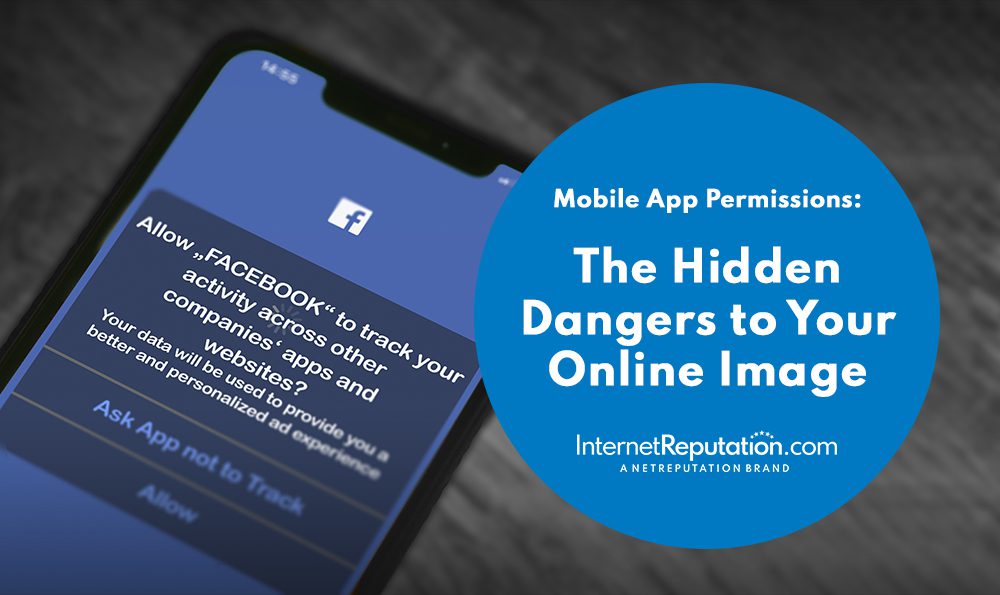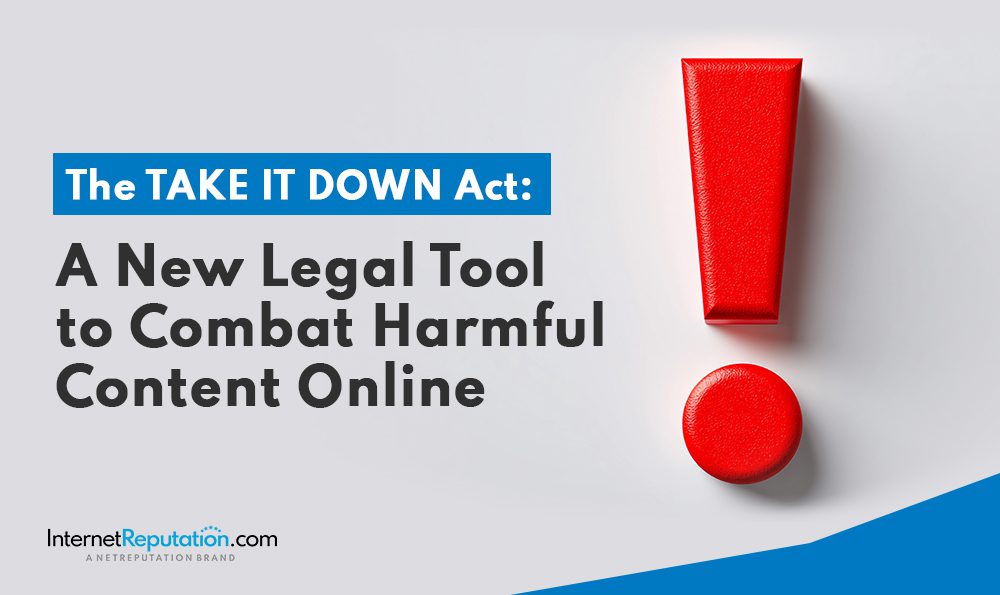Mobile App Permissions: The Hidden Dangers to Your Online Image

Nearly 85% of smartphone users don’t read the full mobile app permissions before installation, potentially exposing themselves to privacy violations. As you casually tap ‘Agree’ on your screen, consider the wealth of personal data you’re inadvertently handing over—ranging from location to contact information and even access to your camera and microphone.
Understanding the implications of these permissions on your online image is crucial. Unbeknownst to you, the apps littered across your device could be silently shaping how you’re perceived online, possibly jeopardizing your reputation and security.
Let’s unpack the layers of risk associated with those seemingly harmless mobile app permissions and uncover how you can take control of your digital identity.
Understanding Mobile App Permissions
Before you download a new app, it’s crucial to understand the permissions it requests and how they can affect your online image. When you hit ‘install,’ you’re often prompted to grant access to various features of your device, such as your camera, contacts, or location. But did you know these mobile app permissions can sometimes compromise your privacy?
For instance, an app that asks for access to your contacts might share your friends’ information without your knowledge. Similarly, when you allow an app to track your location, you’re potentially exposing your daily routine to unknown third parties. This information can be used to profile your habits, preferences, and social circle.
It’s not always clear why an app needs certain permissions, and that’s why you’ve got to be vigilant. Always ask yourself if the app’s functionality justifies the level of access it’s seeking. If a simple game requests access to your messages or call logs, that’s a red flag. Before proceeding, you should review the mobile app permissions carefully and consider the potential impact on your online reputation.
The Privacy Trade-Off
As you navigate the digital world, you’re often prompted to trade your personal data for the convenience of modern apps. You mightn’t notice when app updates quietly expand access to your information, putting you at risk.
Understanding these trade-offs is crucial to protect yourself from potential overexposure of your personal details.
Excessive Data Collection Risks
When you grant extensive permissions to mobile apps, you’re often trading your privacy for convenience, unknowingly exposing yourself to risks of excessive data collection. This trade-off can affect you in several ways:
- Personal Information Exposure
- Sensitive Data: Your home address or payment information could be compromised.
- Contacts: Apps may access and store your contacts, including their personal information.
- Communication Logs: Your calls, texts, and emails could be monitored.
- Behavioral Tracking
- Location Data: Your movements are tracked, building a profile of your habits.
- App Usage: The time you spend on different apps is logged, revealing your interests.
- Targeted Advertising
- Ad Profiles: Data is used to create targeted ad profiles, which can be intrusive.
- Cross-App Tracking: Your activity is tracked across multiple apps, further refining ad targeting.
Unnoticed Privacy Settings Shifts
Many users don’t realize that app privacy settings can change unnoticed, potentially increasing the amount of personal data shared with third parties. Imagine you’ve carefully adjusted your preferences to maintain your online privacy. However, those settings might revert or shift without your knowledge after an update or policy change. You’re suddenly more exposed than you thought.
This isn’t just inconvenient; it’s a trade-off where you risk your personal information for the convenience of using the app. You’ve got to stay vigilant. Regularly check your settings, especially after updates, to ensure they haven’t been altered. If you’re not paying attention, you might unknowingly give away more about yourself than you intended, compromising your privacy and online image.
Personal Information Overexposure Threats
Your personal data could be at stake if you’re not mindful of the mobile app permissions you grant. When you casually click ‘accept’ on those permission requests, you potentially expose sensitive information.
Here’s what you’re risking:
- Location Data
- Real-time tracking: Marketers or malicious actors could be monitoring your movements.
- Location-based profiling: Your frequented places could inform targeted advertising or scams.
- Check-ins and social sharing: Friends aren’t the only ones noticing where you check in online.
- Contact Information
- Spamming: Your contacts might receive unsolicited messages.
- Data breaches: If the app is compromised, so are your contacts’ details.
- Photos and Media
- Unauthorized sharing: Images could be used without your consent.
- Metadata exploitation: Hidden details in photos can reveal more than you think.
Personal Data at Risk
You’re at risk whenever you download a new app and skip through the privacy settings. Ignoring these can lead to the harvesting of your personal data without your explicit consent.
Understanding what you’re agreeing to to protect your online image is crucial.
Data Harvesting Concerns
When downloading apps, it’s vital to consider the risk of personal data being harvested without explicit consent. You mightn’t realize that your information could be used or sold for:
- Marketing purposes
- Tailored advertisements
- Email spam campaigns
- Telemarketing calls
- Unethical data trading
- Selling to data brokers
- Exchange between companies
- Dark web activities
- Machine learning datasets
- Improving AI algorithms
- Facial recognition training
- Behavior prediction models
Each app’s privacy policy might hide the extent of data harvesting behind complex terms. You’ve got to be vigilant and understand what you’re agreeing to. Otherwise, your personal data, from location to contacts, could be compromised, impacting your online image and privacy.
Privacy Settings Overlooked
Many users inadvertently expose their personal data by neglecting to adjust the default privacy settings on new apps. You download a new app, excited about its features, but overlook the fine print where your information is at stake.
It’s easy to skip past the settings, allowing the app more access than necessary. You mightn’t realize that your location, contacts, or even personal photos could be at risk.
Apps and Identity Theft
Apps often require access to personal information, but granting these mobile app permissions can inadvertently expose you to identity theft risks. Malicious actors can exploit app permissions to gather personal data, which they can use to impersonate you. It’s crucial to be discerning about the apps you download and the permissions you allow.
Types of Permissions That Pose a Risk:
- Contact Information: Access to your contacts can reveal your connections and shared details, which can be useful for social engineering attacks.
- Location Data: Constant tracking can disclose your routines and places of residence or work, making you a target for physical and digital stalking.
- Financial Information: Apps linked to financial services must be treated with extreme caution as they can provide direct routes to your funds.
Review mobile app permissions regularly to protect yourself and uninstall those you don’t trust or no longer use. Be wary of apps requesting unnecessary permissions that are unrelated to their functionality. Remember, the fewer permissions you grant, the less you’re at risk.
Your digital footprint is as unique as your fingerprint; guard it carefully to prevent identity theft and safeguard your online image.
Mobile App Permissions and Online Reputation
You mightn’t realize it, but the permissions you grant to apps can significantly impact your online reputation.
Understanding app permissions is crucial as they can expose your digital identity to risks if not managed properly.
Let’s explore how to effectively manage your permission settings to safeguard your online image.
App Permissions Explained
Understanding app permissions is crucial for managing your online reputation, as these settings dictate what personal data you share with different applications. Here’s a breakdown of common mobile app permissions and how they can impact your privacy:
- Location Access
- Real-time tracking: Can reveal your whereabouts.
- Geotagged photos: Potential for location-based image sharing.
- Local content suggestions: May lead to targeted advertising.
- Contact List Access
- Social media connections: Could expose your network.
- Auto-filling emails or numbers: Increases risk of accidental shares.
- App referrals: Might inadvertently share contacts with third parties.
- Camera and Microphone Access
- Audio and visual recording: Possibility of eavesdropping.
- Video conferencing apps: Can capture sensitive conversations.
- Image uploads: Risk of personal photos being stored or misused.
Always review app permissions to ensure you’re not oversharing and putting your online image at risk.
Risks to Digital Identity
Recognizing the implications of app permissions is just the starting point; it’s also essential to consider how they might compromise your digital identity and tarnish your online reputation. When you grant access to personal data, you’re not just sharing information with the app—it could be exposed to unknown third parties. They might misuse your details for identity theft, creating a fake persona, or even for targeted phishing attacks against you or your contacts.
Moreover, if an app shares your activities or preferences without discretion, it can lead to embarrassing situations. Imagine personal searches or purchases popping up in ads while you’re showcasing a presentation. Your professional image could take a hit.
Always review permissions, and be wary of apps that overreach; your digital footprint is at stake.
Managing Permission Settings
To safeguard your online reputation, it’s crucial to manage app permissions meticulously, ensuring only necessary access is granted to protect your personal information. Here’s how you can take control:
- Review Permissions Regularly
- Check app settings: Dive into each app’s settings and review what permissions you’ve granted.
- Update as needed: Adjust permissions based on current usage—don’t let apps retain access if it’s no longer required.
- Uninstall unused apps: Reduce risk by removing apps you no longer use.
- Stay Informed
- Read updates: App updates can change permission requirements, so stay alert.
- Understand the risks: Know which permissions could expose sensitive data.
- Use Trusted Sources
- Download from official stores: Stick to reputable app stores to avoid malicious software.
- Research apps before downloading: Look at reviews and ratings to gauge reliability.
Overlooked Tracking Implications
Many mobile apps track your location and activities in ways you mightn’t expect, impacting your online image and privacy. You’re often unaware of the extent to which apps monitor your behavior and share your data with third parties. Overlooking these tracking implications can leave digital footprints that are hard to erase.
When you install an app and grant it permissions, you’re potentially allowing it to track you continuously. This data might be used to create targeted advertising profiles that reflect your habits and preferences. It’s not just about ads, though. This information can influence how you’re perceived online, shaping your digital persona in ways you haven’t authorized.
Companies may sell your data to unknown entities, further spreading your online presence without your consent. Even seemingly harmless apps can contribute to this issue. For instance, a flashlight app that requests access to your contacts or location doesn’t need this information to function. Yet, if you’re not vigilant, you might grant these mobile app permissions without a second thought, inadvertently exposing yourself to risks.
The Myth of “Free” Apps
While you may be cautious about the permissions you grant, it’s also essential to scrutinize the true cost of apps advertised as ‘free.’ These apps can be deceptive, luring you in without upfront charges, but they often monetize your usage in less obvious ways. Here’s what you need to watch out for:
- Data Collection
- Personal Information: Apps may gather data like your name, email, and location.
- Behavioral Insights: They track how you interact with the app to tailor advertisements.
- Device Usage: Details about your device and other installed apps can be harvested.
- Targeted Advertising
- Ad Revenue: Free apps rely on showing you ads, which are often personalized using your data.
- In-App Purchases: You’re nudged towards spending money on features or virtual goods.
- Sponsored Content: Sometimes, apps include paid promotions disguised as regular content.
- Third-Party Sharing
- Analytics Services: Your data might be shared with companies that analyze app usage trends.
- Advertisers: Specific details about you can be sold to advertisers for more targeted campaigns.
- Affiliates: Partnerships with other companies may involve exchanging user data for various benefits.
Third-Party Data Sharing
You might be surprised to learn that the personal details you share with an app can end up in the hands of various third-party companies. When you download an app and accept its permissions, you’re often giving it the green light to pass your information to others. These third parties could be advertisers, analytics firms, or even data brokers who trade in personal information.
They use your data to build profiles, tailor ads, and sometimes even influence your online experiences. It’s a trade-off – you get to use the app for free, but in exchange, your digital footprint is being tracked and monetized.
You may think you’ve got nothing to hide, but this data collection isn’t always transparent or secure. Once your data is out there, you’ve lost control over who sees it and how it’s used. And it’s not just about ads; your information could potentially influence credit scores, insurance rates, or even job prospects.
Legal Aspects of Permissions
Understanding the legal implications of mobile app permissions can help safeguard your privacy as your data navigates through the intricate web of third-party exchanges. It’s essential to know that laws vary by country, and what’s permissible in one place might be illegal in another. You’ve got rights under data protection laws like the GDPR in Europe, which give you control over your personal information.
Here’s what you should keep an eye on:
- Consent
- Must be freely given and specific
- Can be withdrawn at any time
- Needs to be explicit for sensitive data
- Transparency
- Apps must inform you about data collection purposes
- Should disclose any third-party sharing
- Requires clear and understandable privacy policies
- Accountability
- Developers are responsible for data breaches
- Must implement adequate security measures
- Obligated to report certain breaches to authorities
Safeguarding Your Digital Footprint
Everyone should be proactive in protecting their digital footprint when navigating the complex world of mobile app permissions and data sharing. Your personal information is valuable, and it’s easy to overlook how much of it you’re giving away with each app download. So, what can you do to shield your online presence?
Firstly, always read the permissions list before installing an app. If an app’s request seems excessive for its function, it’s a red flag. Don’t be afraid to hit ‘decline’—your privacy is worth more than a new app. Regularly check the permissions of apps you’ve already installed, too. Updates can change permissions, so stay vigilant.
Secondly, use privacy-focused apps that minimize data collection. For social media, adjust your privacy settings to limit who can see your posts and personal information. Share with caution, as once something is online, it’s nearly impossible to erase it.
Lastly, consider using a VPN to mask your online activity, and don’t forget to log out of your accounts when you’re done. By taking these steps, you’ll better control your digital footprint and protect your online image.
Protect Your Online Image with InternetReputation!
In a digital world where your online image is your most valuable asset, can you afford to leave your reputation to chance? At InternetReputation, we believe that everyone has the right to a fair and accurate portrayal on the web. Our expert team is dedicated to crafting and maintaining your pristine online presence, ensuring that you shine in the spotlight while the shadows are kept at bay.
Don’t let a tarnished reputation hold you back.
Our battle-tested strategies and innovative tools are your shields against online threats, and our personalized approach means you get a tailored defense that fits your unique reputation needs.
Whether you’re:
- A professional seeking career growth,
- A business aiming for brand loyalty,
- An individual striving for personal branding, or
- An enterprise in need of reputation resilience,
InternetReputation is your trusted partner.
→ Join the ranks of satisfied clients who have witnessed transformative results.
→ Claim your right to a stellar online image.
Act Now! Protect your reputation, promote your best self, and propel your success forward with InternetReputation.com.
Visit Our Services Page to start your journey toward an impeccable online presence, or give us a call for a free consultation and let us show you how we can turn the tide of public opinion in your favor. Because when it comes to your reputation, we mean business.



